FEATURES

The tiny paws running across her chest and arms tickle a giggle out of Ulyana Kudzyvceva, 20, as she, her boyfriend Andrey Mezencev and her pet mouse celebrated her birthday at a video arcade in downtown Moscow, Russia.
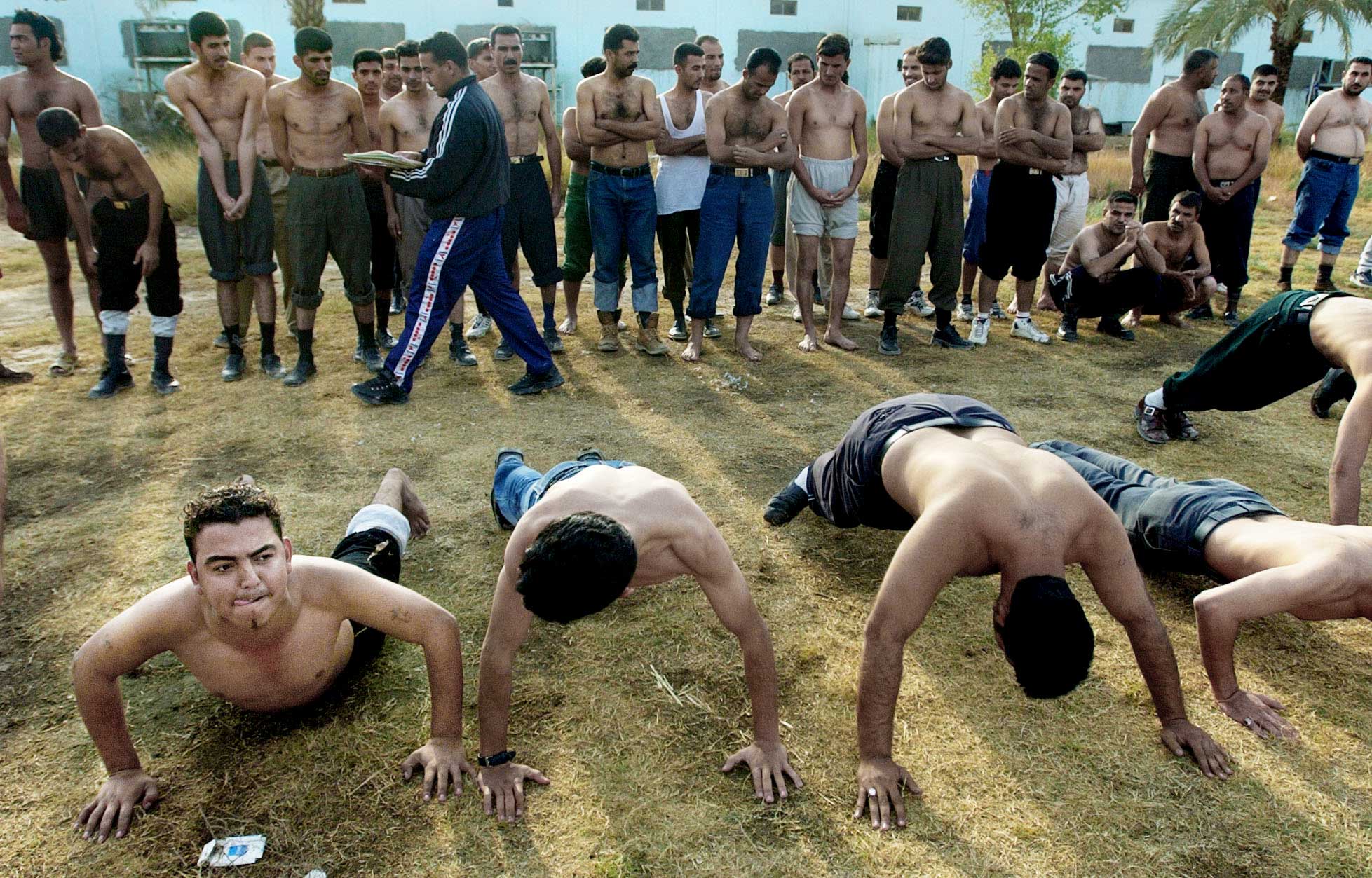
At the Baghdad Police Academy, former Iraqi police officers and new cadets endure physical fitness training as part of the U.S. forces' efforts to return control and law enforcement to the Iraqis.

Nawris Ali, 24, has her necklace adjusted during a photo sitting at a studio in Basra, Iraq, on her wedding day. While weddings under President Saddam Hussein involved parties, dancing between men and women and live bands, today couples fearful of reprisal from religious police resort to quick plans, some clapping and cheering from family and friends, and a quiet visit to a hotel.
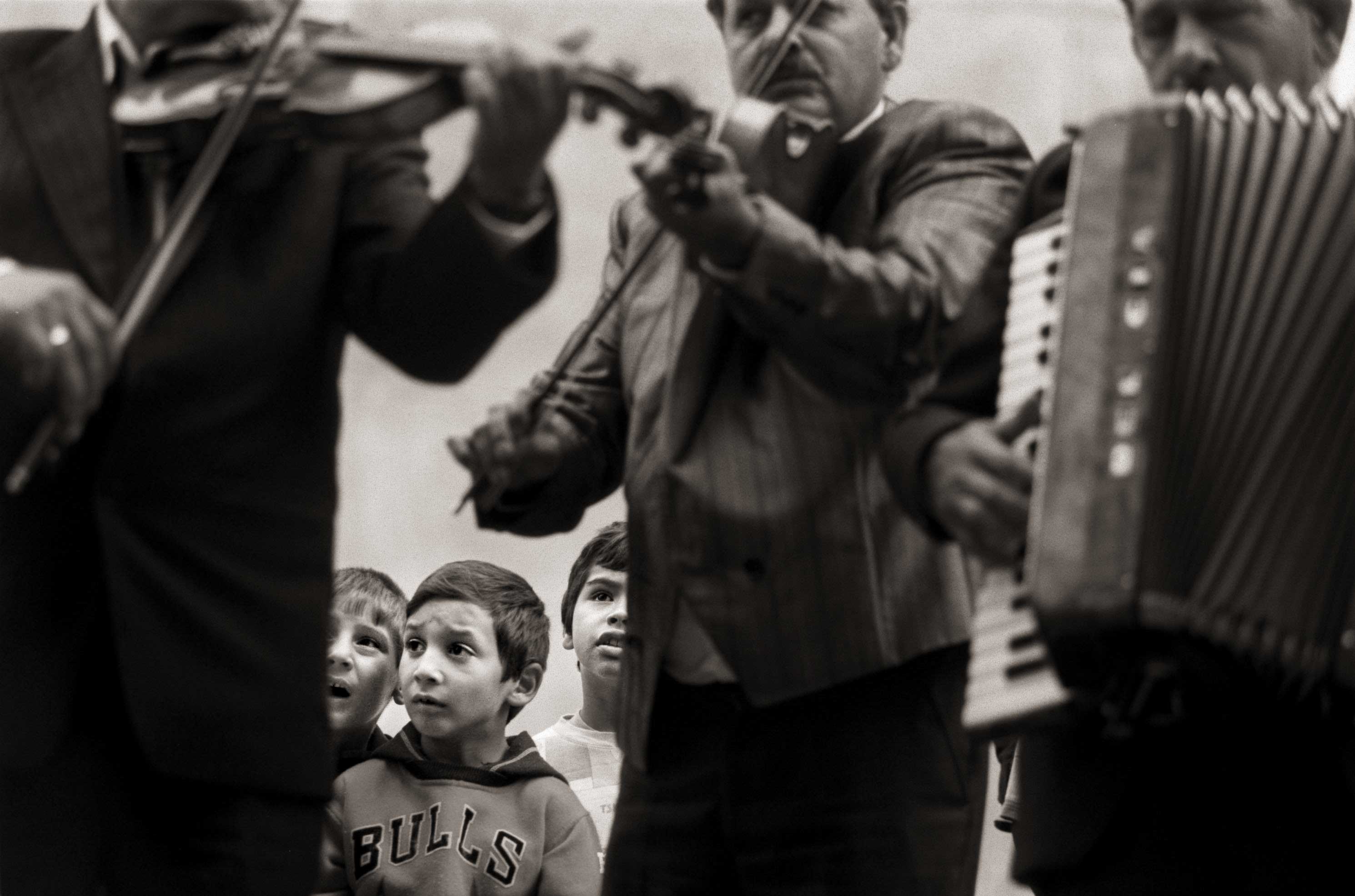
Roma children listen to musicians playing a lilting tune for the funeral of a 21-year-old man in Chanov, the Czech Republic.
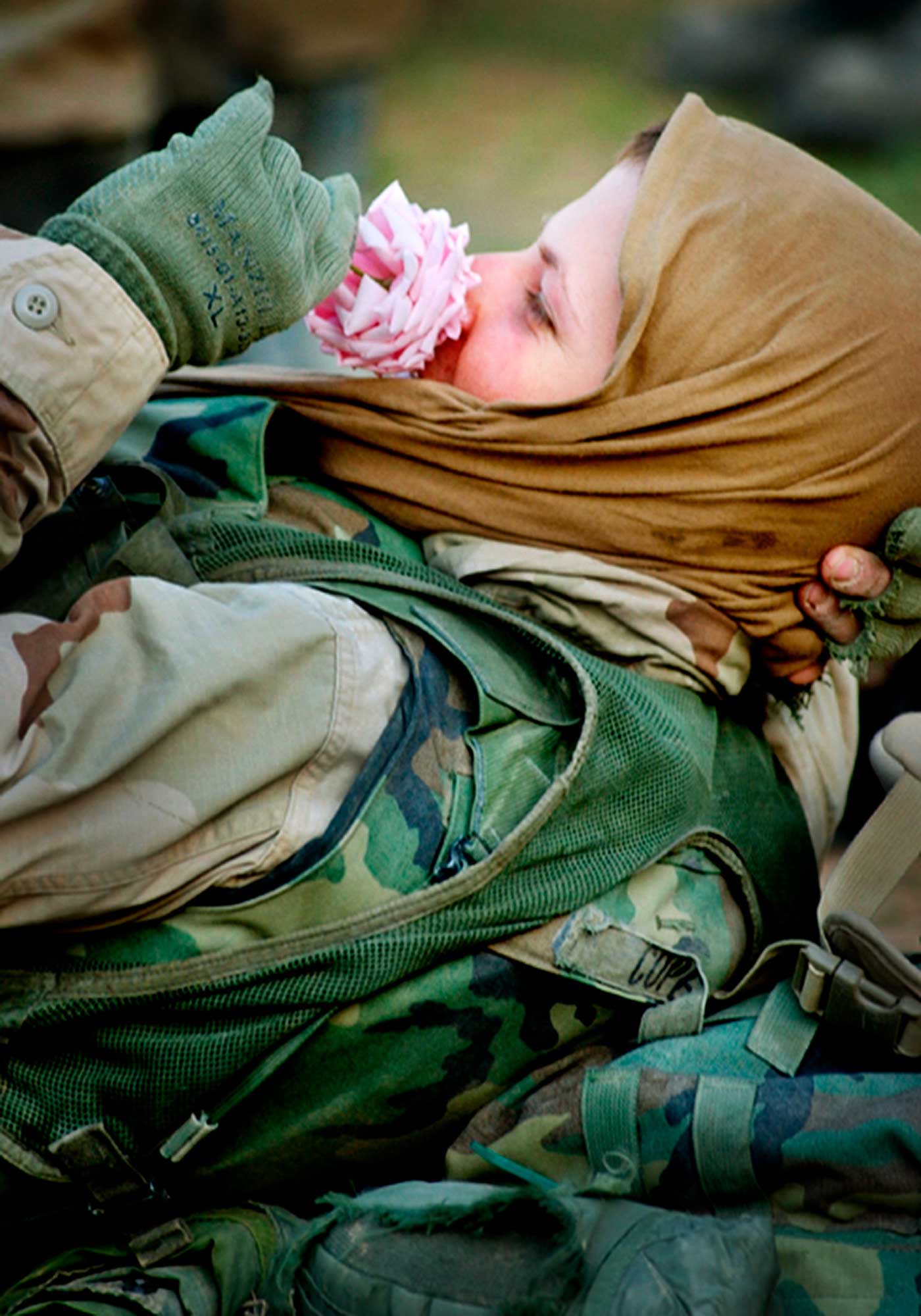
U.S. Marine Corporal Richard Cope, 23, of Michigan, enjoys the scent of a rose plucked from the gardens of Baghdad College where the Fox Company, Second Tank Battalion, Fifth Marine Regiment, are camped in the north of Baghdad, Iraq.
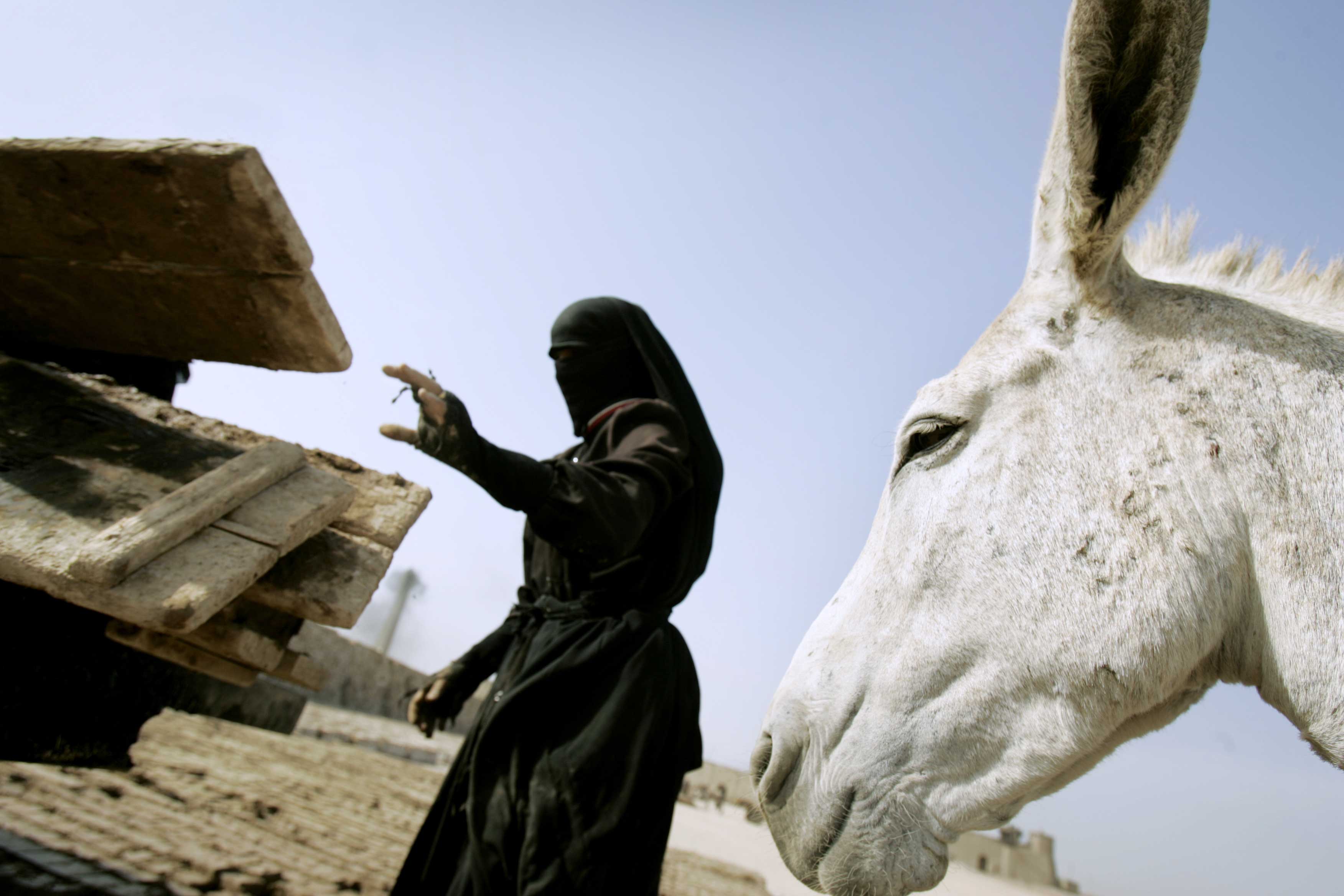
Salwa Abdul Hussein is one of a number of women who work unloading wet bricks before they are put in the kiln at the Haji Sami Brick Factory in Missan Province in southern Iraq. Men, women and children ages 7 to 73 toil to produce some 100,000 bricks monthly to meet the high demand for rebuilding in Basra, Amara, and other nearby towns. As the economy rebounds, salaries have increased but workers say the $20 per week is still insufficient to support themselves and their families.

Media staffers await Pope Francis’ arrival to the Basilica of the National Shrine of the Immaculate Conception in Washington, D.C., on Sept. 23, 2015. The Pope, who will canonize California's Franciscan missionary Junipero Serra, visits the U.S. for the first time. The basilica is the largest Catholic Church in North America.

Sisters Sabreen and Manal Mohammed, ages 9 and 11, left and right, dip their hands in the water during a boat ride with family members on the Shatt Al Arab in Basra, Iraq. The mood is relatively peaceful and Basrans enjoy their leisure time visiting the confluence of the Tigris and Euphrates Rivers, where the riverfront attracts people of all ages who freely take boat rides, gather to smoke hookahs, fish, swim or simply stroll.
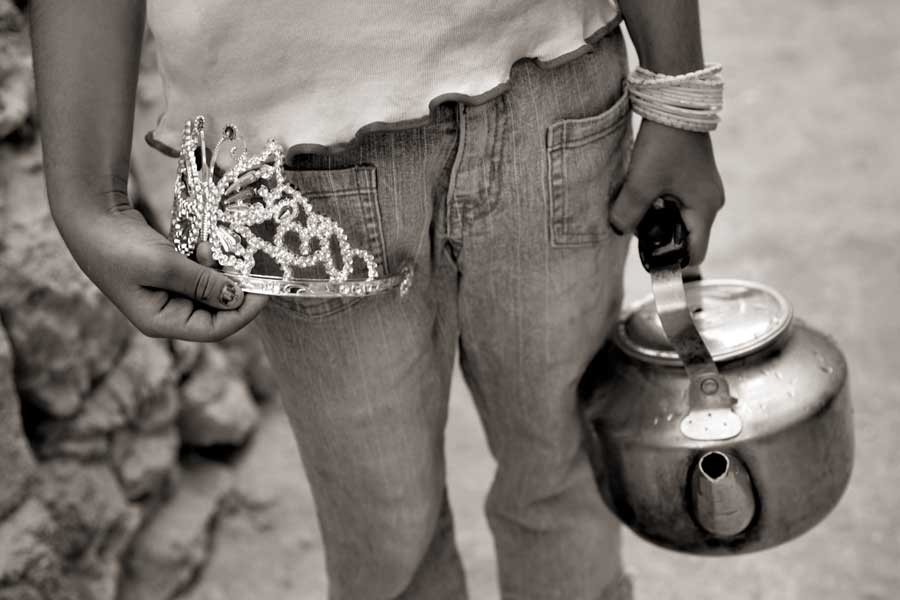
A tiara and a tea kettle represent the hopes and reality for a young Ezidi girl attending the annual Jamai Festival in Iraqi Kurdistan. The group, which is an ancient clan of Kurds, regards itself as the chosen people of Adam and the oldest faith in history. In 2014, ISIS killed Ezidis en masse and sexually enslaved thousands of women and girls, causing many to commit suicide and leading to one of the gravest humanitarian tragedies under ISIS.
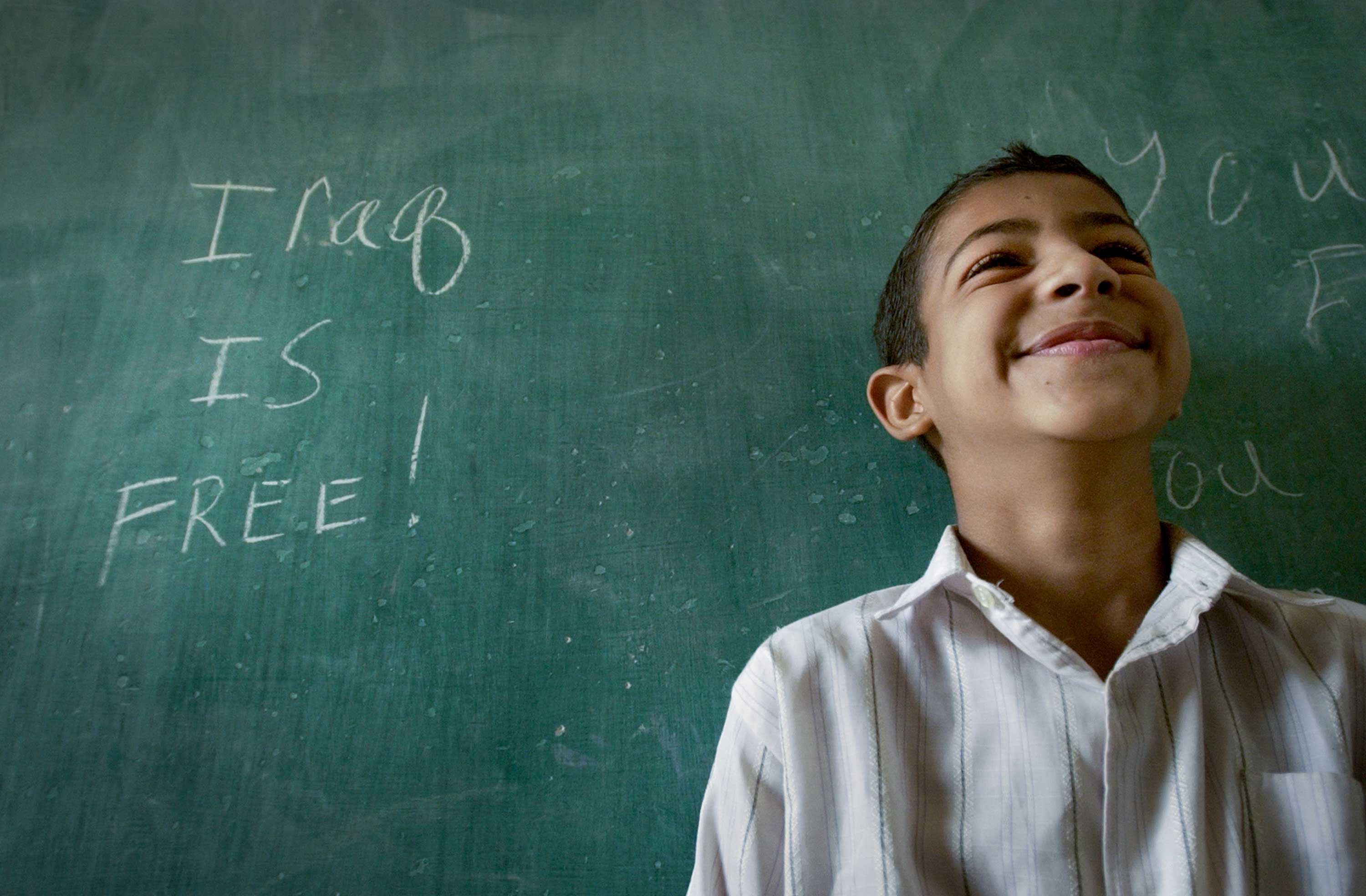
Uniss Mohammad Salman, 10, returned to Al Amtithal Elementary School to a message on the chalkboard from the U.S. military -- “Iraq is free!” Al Amtithal was the first school to reopen in Baghdad, Iraq, after the U.S.-led invasion in 2003.
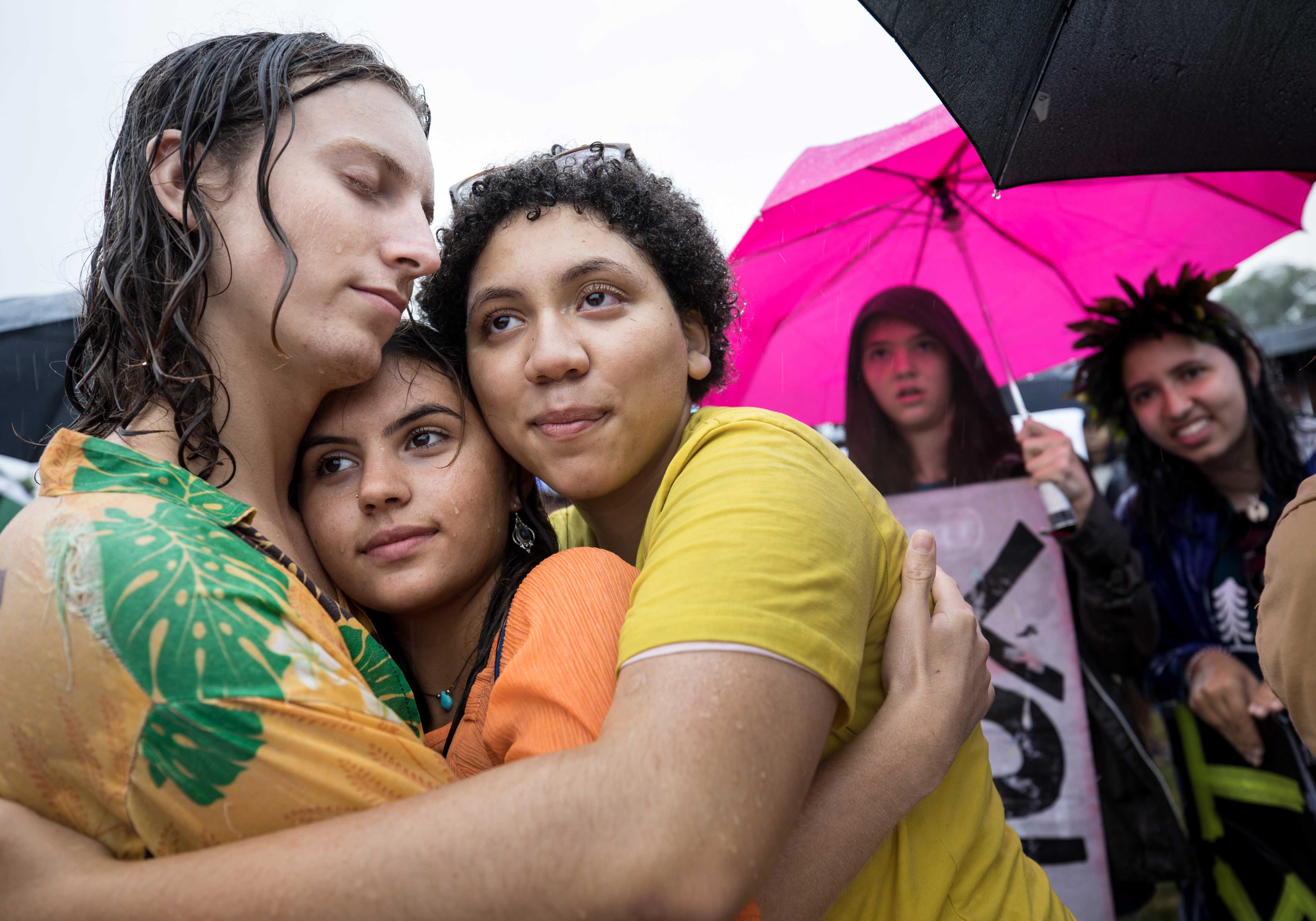
Jaiia Cerff, Mia Eastman and Imara Rose Glynph, left to right, hug in the rain as they listen to speakers at the Youth Climate March on the National Mall in Washington, D.C. The Zero Hour movement hopes to raise awareness of climate change and demand legislation to ensure a clean, healthy and safe environment. The march was accompanied by some 20 other marches worldwide, on four continents.

Lu Xiumei, 38, reads newspapers as she rides the train to Dalian in the northeast of China. Xiumei grew up in the mountain village of Manzu and farmed with her husband until she divorced him 10 years ago. Through hard work and determination, she was able to open her own beauty shop three years ago.
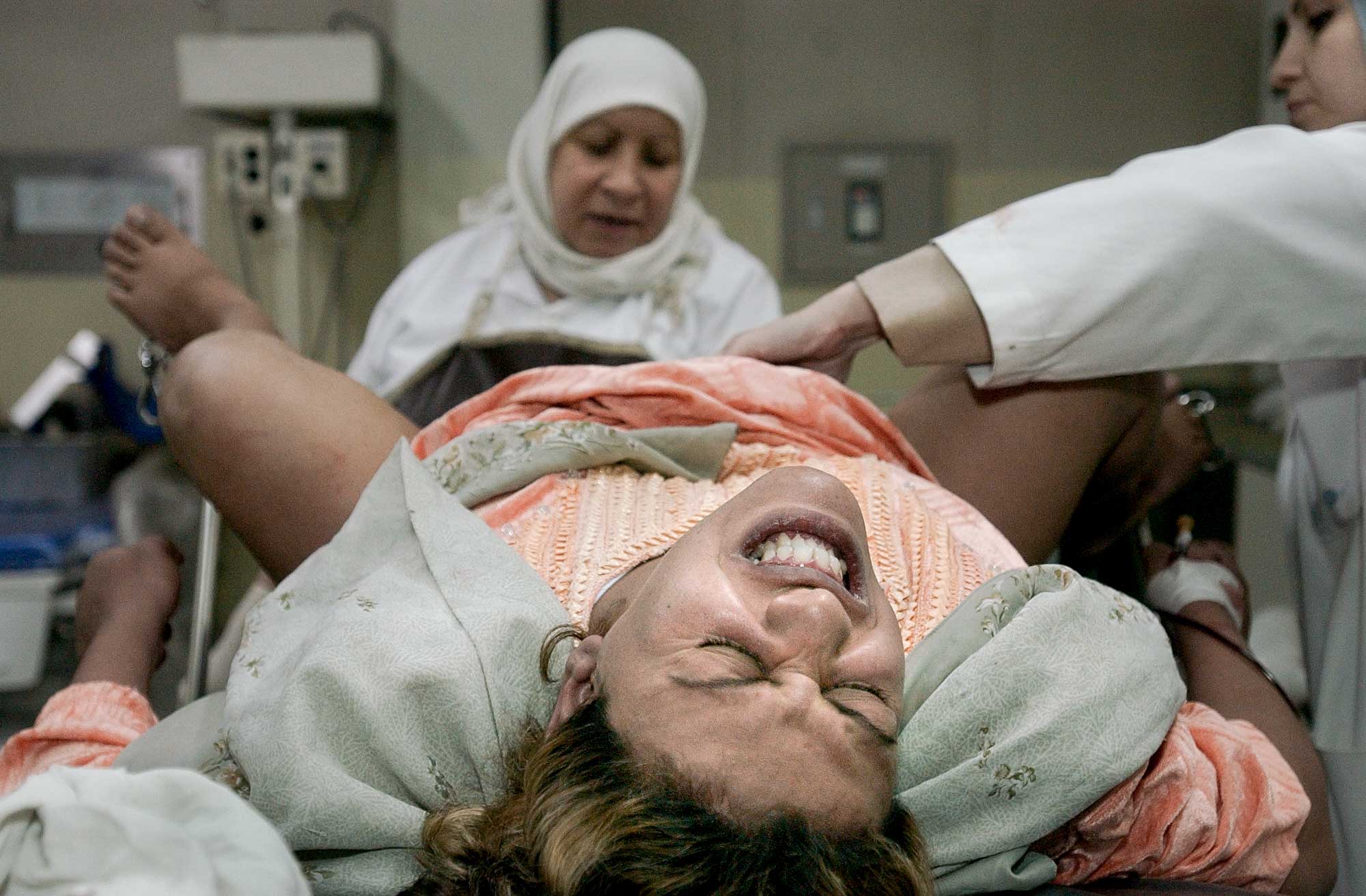
At Kadhamiya Hospital in Baghdad, Iraq, basic medicines, supplies and equipment are lacking. But doctors at the hospital who helped fight off looters during the war say the problem is not the lack of medical supplies but the greed that has gripped Iraqis, including the hospital staff who have been pilfering the hospital's supplies.
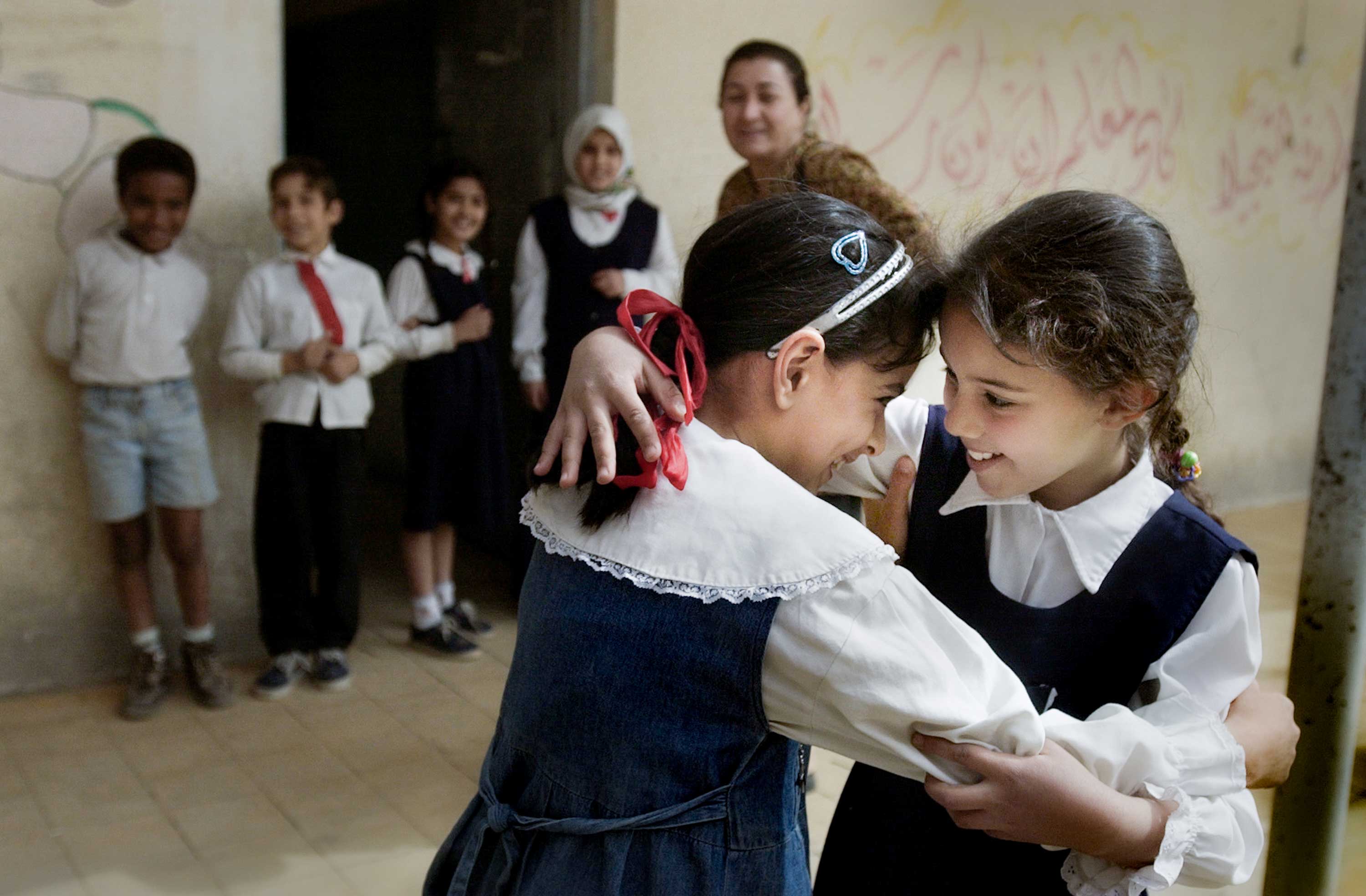
After not having seen each other for weeks during the war, Fatma Mohammad and Zubaida Salman, left and right, greet each other warmly at Al Amtithal Elementary School, the first to reopen in Baghdad, Iraq, after the U.S.-led invasion in 2003. Of 1200 pupils, only a handful of children returned after the school was cleared of munitions.

Pope Francis is greeted with cheers as he arrives to the Basilica of the National Shrine of the Immaculate Conception in Washington, D.C.. The Pope, who will canonize California's Franciscan missionary Junipero Serra, visits the U.S. for the first time.
Tenement Dreams
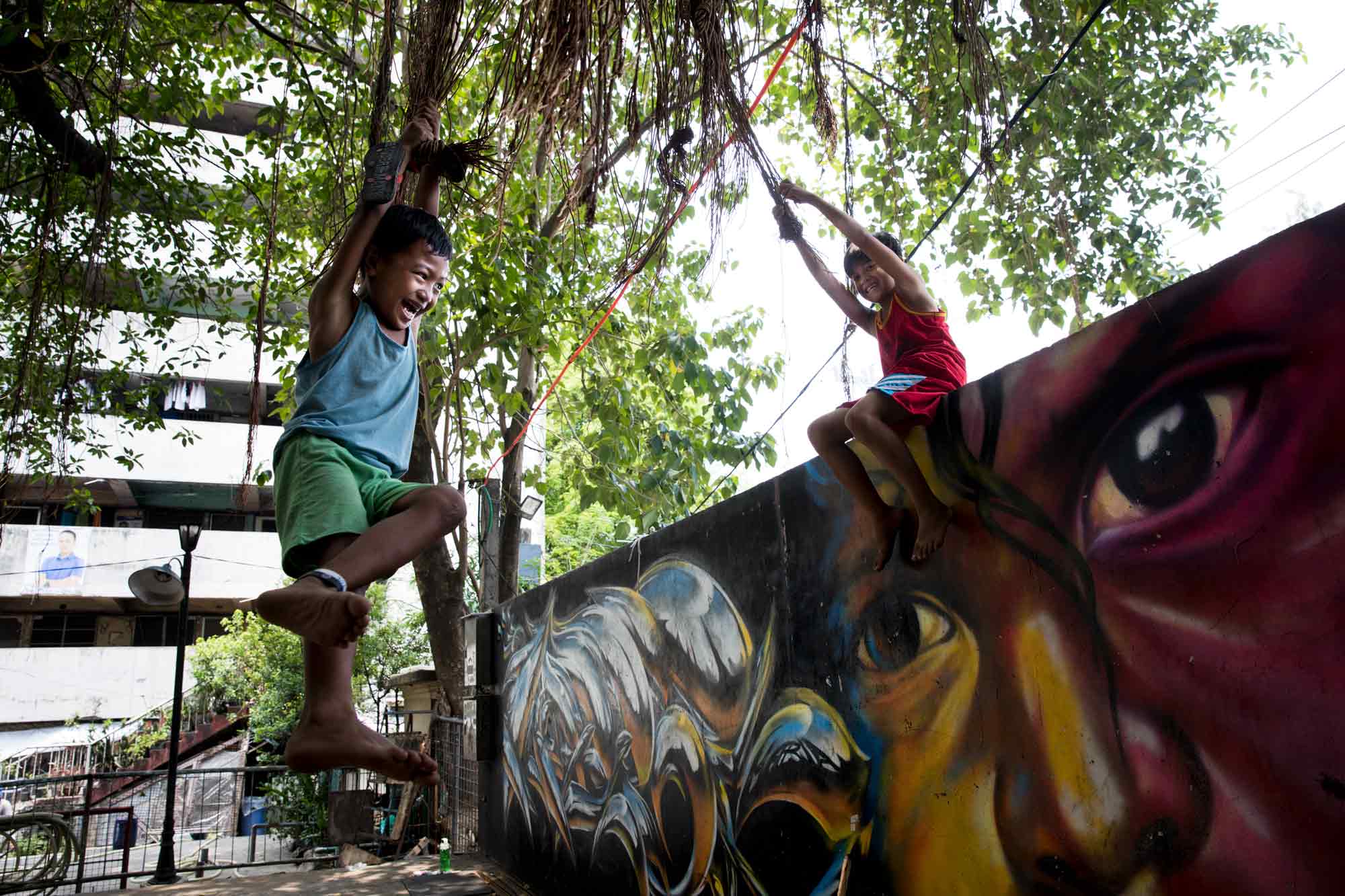
Prince Jay Dadulla, 8, and Jaylord Diorico, 10, left and right, swing from vines that hang from an old tree in the public square at the Tenement in Taguig, Philippines. Many families residing at the Tenement have lived there for generations, entrenched in poverty.
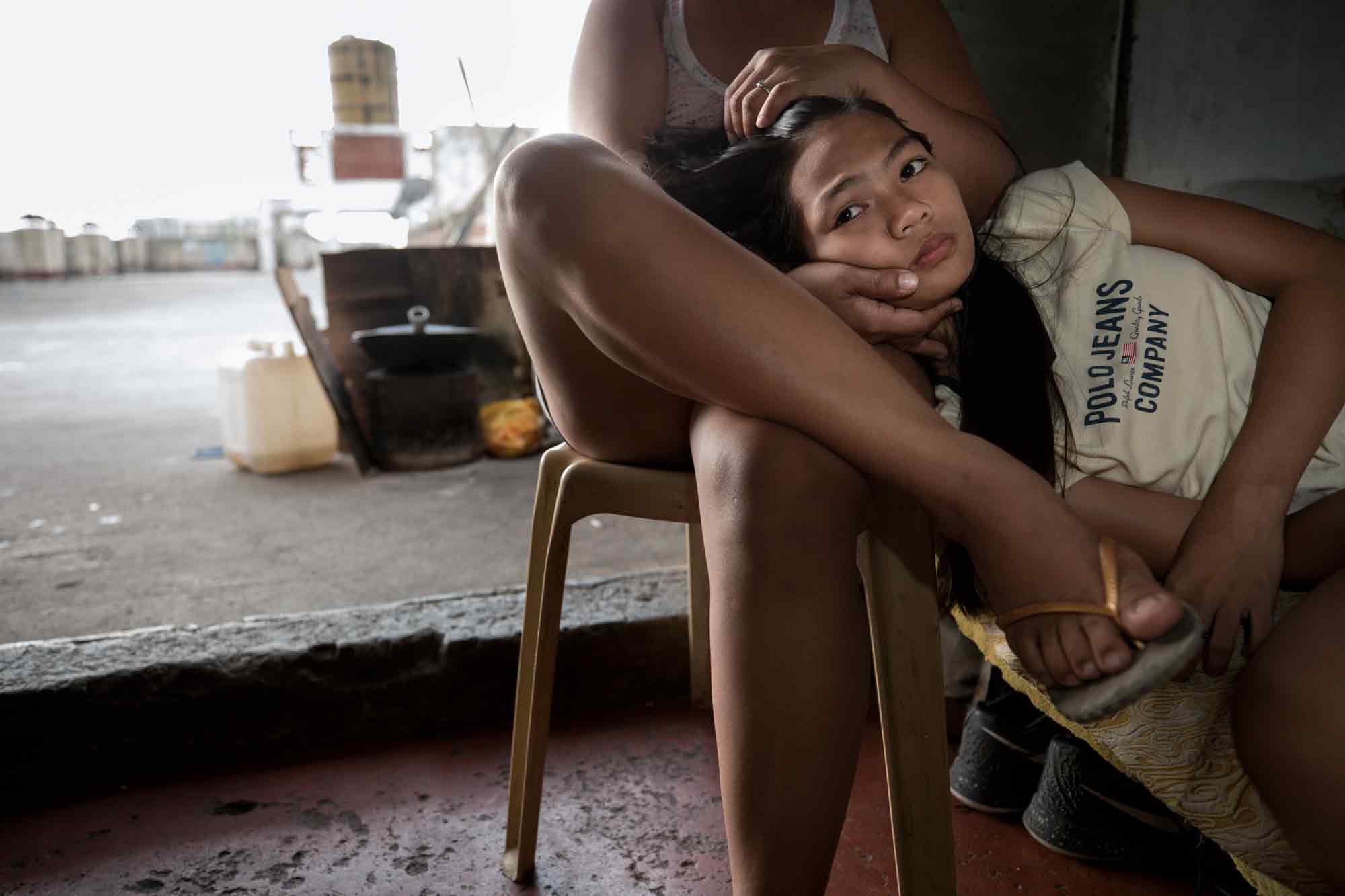
Michelle Nicdao, 14, lays in her mother Maria Oliva Pagayanan's lap in their rooftop unit which they share with her three brothers at the Tenement in Taguig, Philippines. In her youth, Pagayanan entertained men in nightclubs; it was her father who got her the job.

Mic Jimwell Nicdao and Stevan Dig, both ages 15, left and right, cart water sold from hoses in the public space up to their rooftop unit at the Tenement in Taguig, Philippines. In April, water stopped flowing into the taps at the tenement and the residents were told it was due to a water shortage. They don't know when water will be restored, so they cart jugs of water several times daily to cook, wash clothes and bathe.
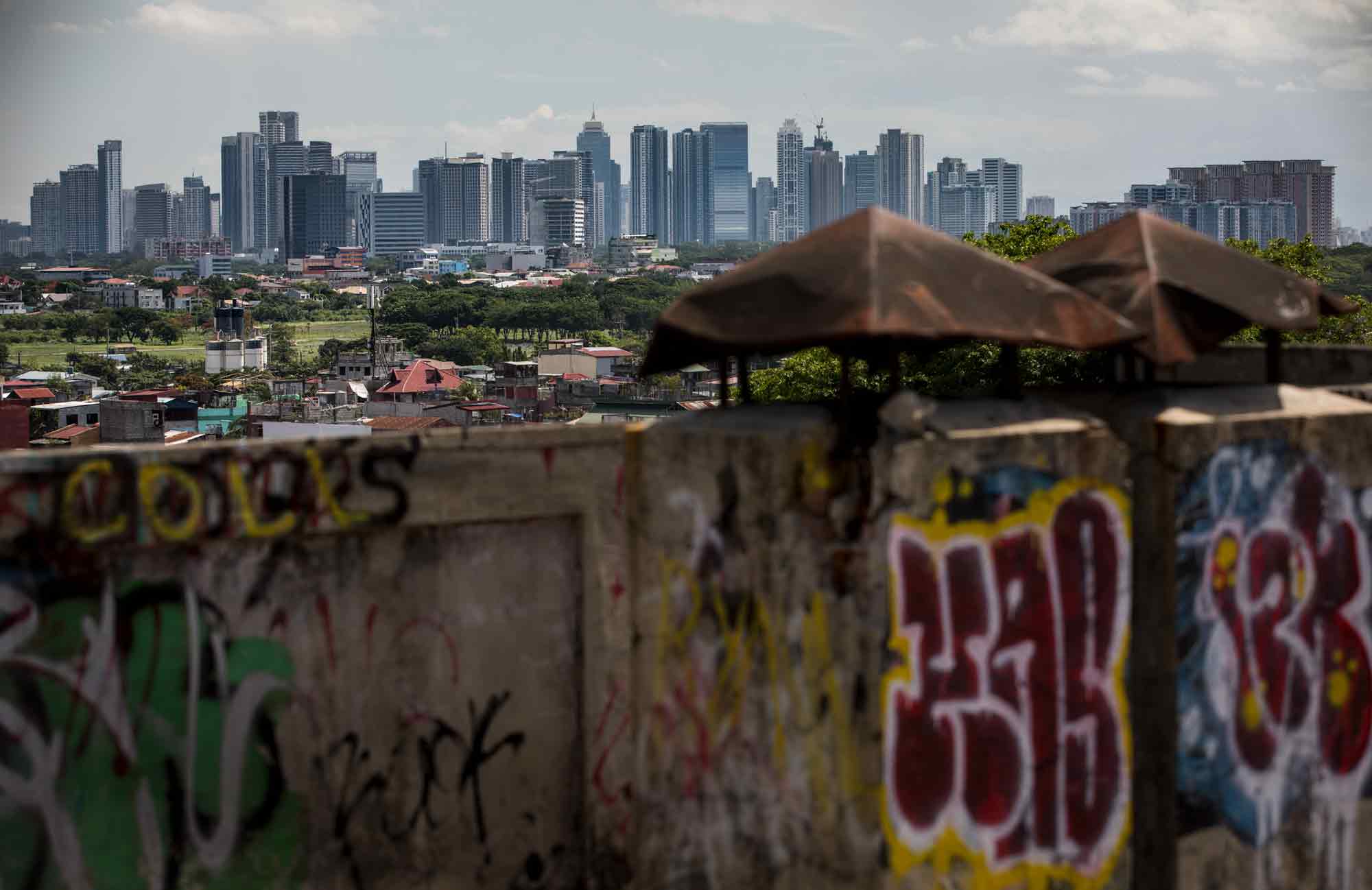
Built in 1963, the Tenement in Taguig overlooks Makati's wealthy high rises in Metro Manila, Philippines. In 2014, the National Housing Authority condemned it and posted eviction notices, with a promise of relocation in the neighboring city of Cavite. But a contradictory study by the Department of Works and Highways said the building could be retrofitted, so residents have been fighting to keep the building ever since.
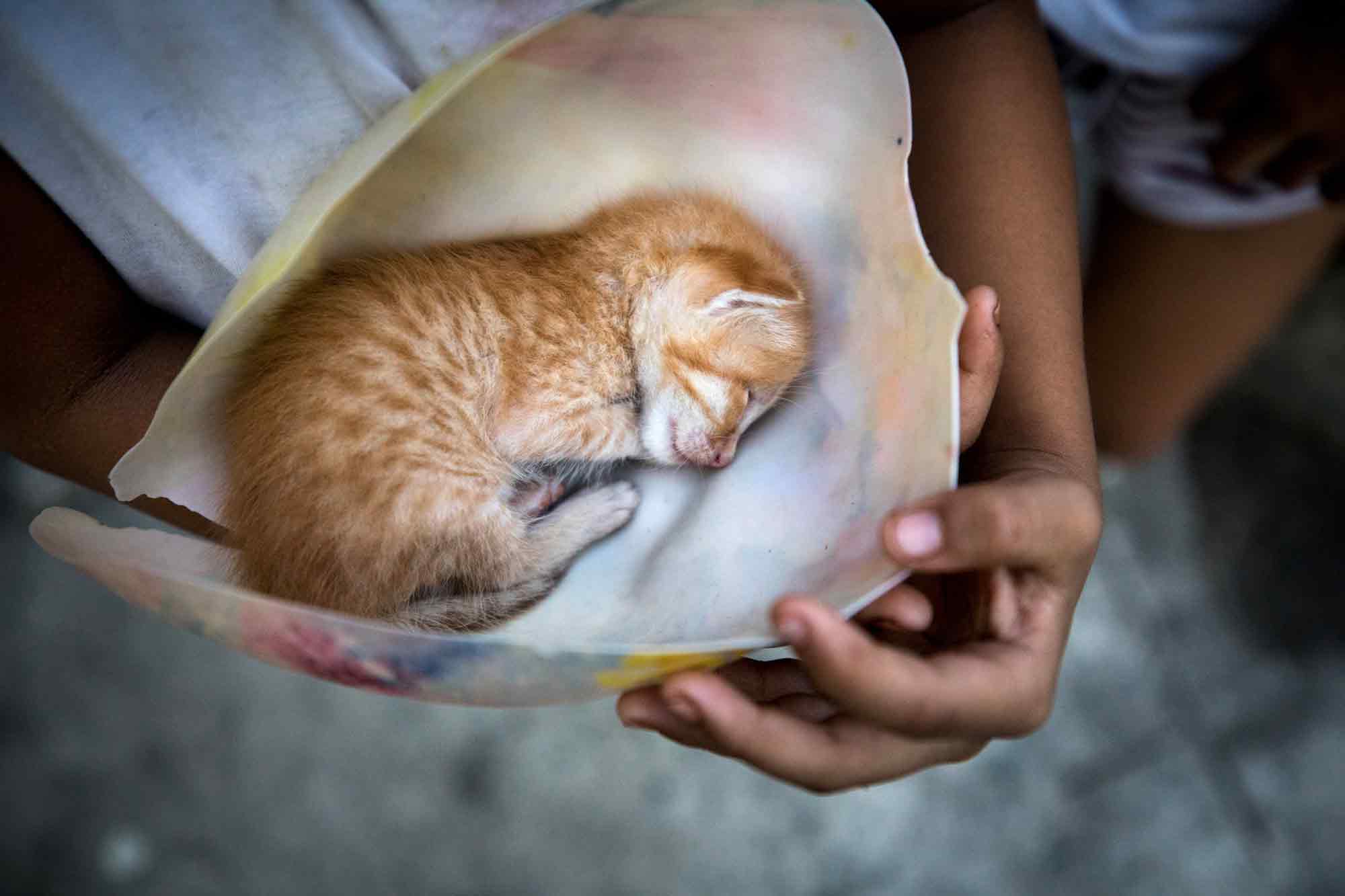
Prene Kaye del Rosario, 6, protectively carries one of the many stray kittens wandering the Tenement in Taguig, Philippines.
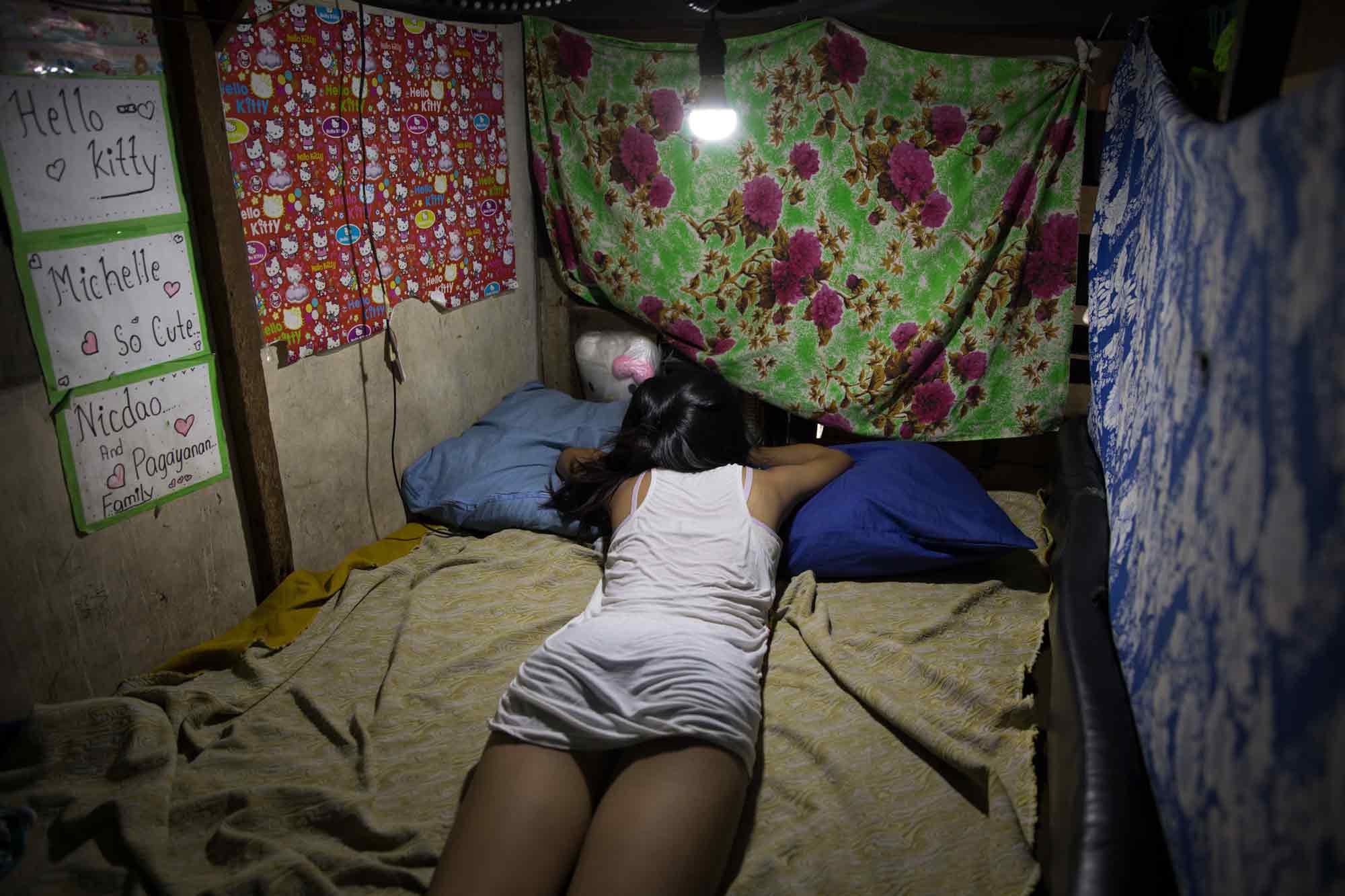
Michelle Nicdao, 14, rests in the privacy of her makeshift sleeping quarters in their rooftop unit, where she lives with her mother and three brothers at the Tenement in Taguig, Philippines. Michelle's great grandfather was an original awardee of a unit at the Tenement and her grandparents also reside on the property. Her father was on a path to becoming a professional basketball player but drugs killed his career, said her mother Maria Oliva Nicdao.
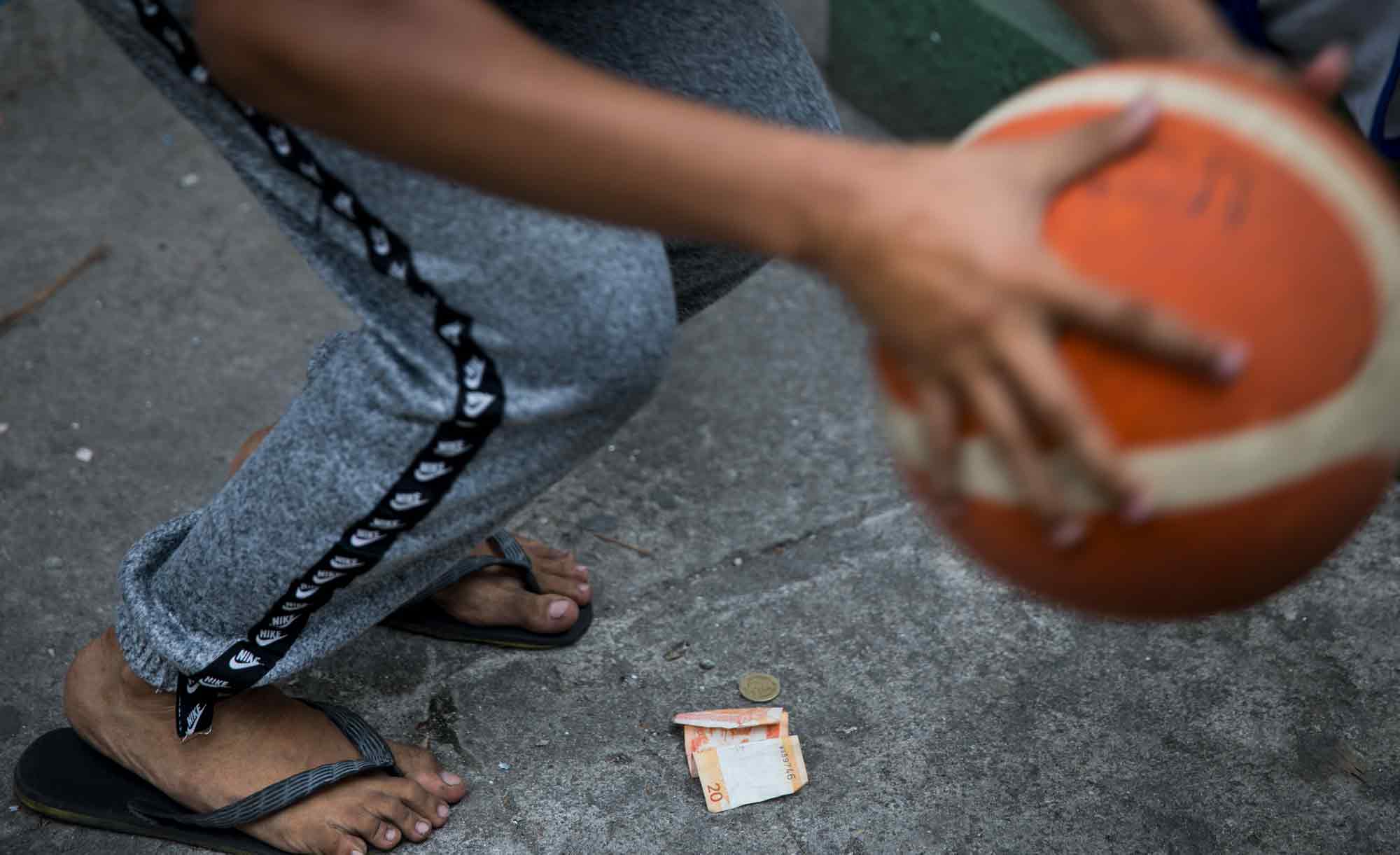
Residents at the Tenement often challenge each other shooting hoops for a few pesos to afford a meal in Taguig, Philippines. The Tenement has been home to players young and old, who passionately occupy its two courts from early morning until late night.
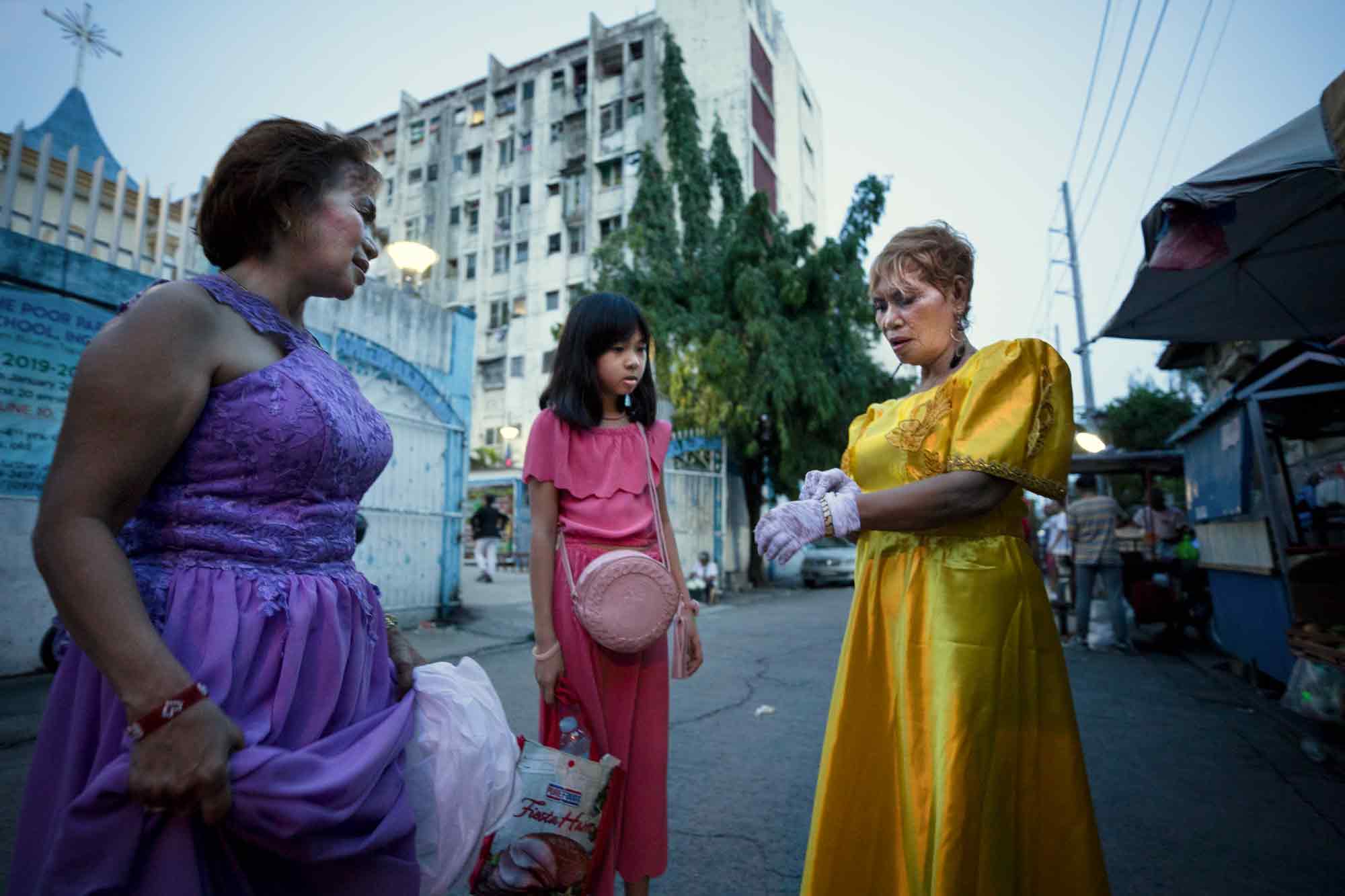
Wearing finery in celebration of Flores de Mayo Mass at Our Lady of the Poor Parish, Heyde Desuasido, Jamilla Padua and Rose Blanca, left to right, depart the church, located in the shadow of the Tenement in Taguig, Philippines.

Coach Eddie Barbuena works with impoverished teen boys and girls, offering free basketball training to keep them out of trouble at the Tenement in Taguig, Philippines. Arvie Talorong, Tony Lolos, Alexis Nicdao, Vicver Calungsod, Emman Kyle Atip, and Yuan Taruc, left to right, listen intently to Barbuena, who is a local hero in the community.

Tricia Calungsod does core strengthening during basketball training with Coach Eddie Barbuena at the Tenement in Taguig, Philippines.
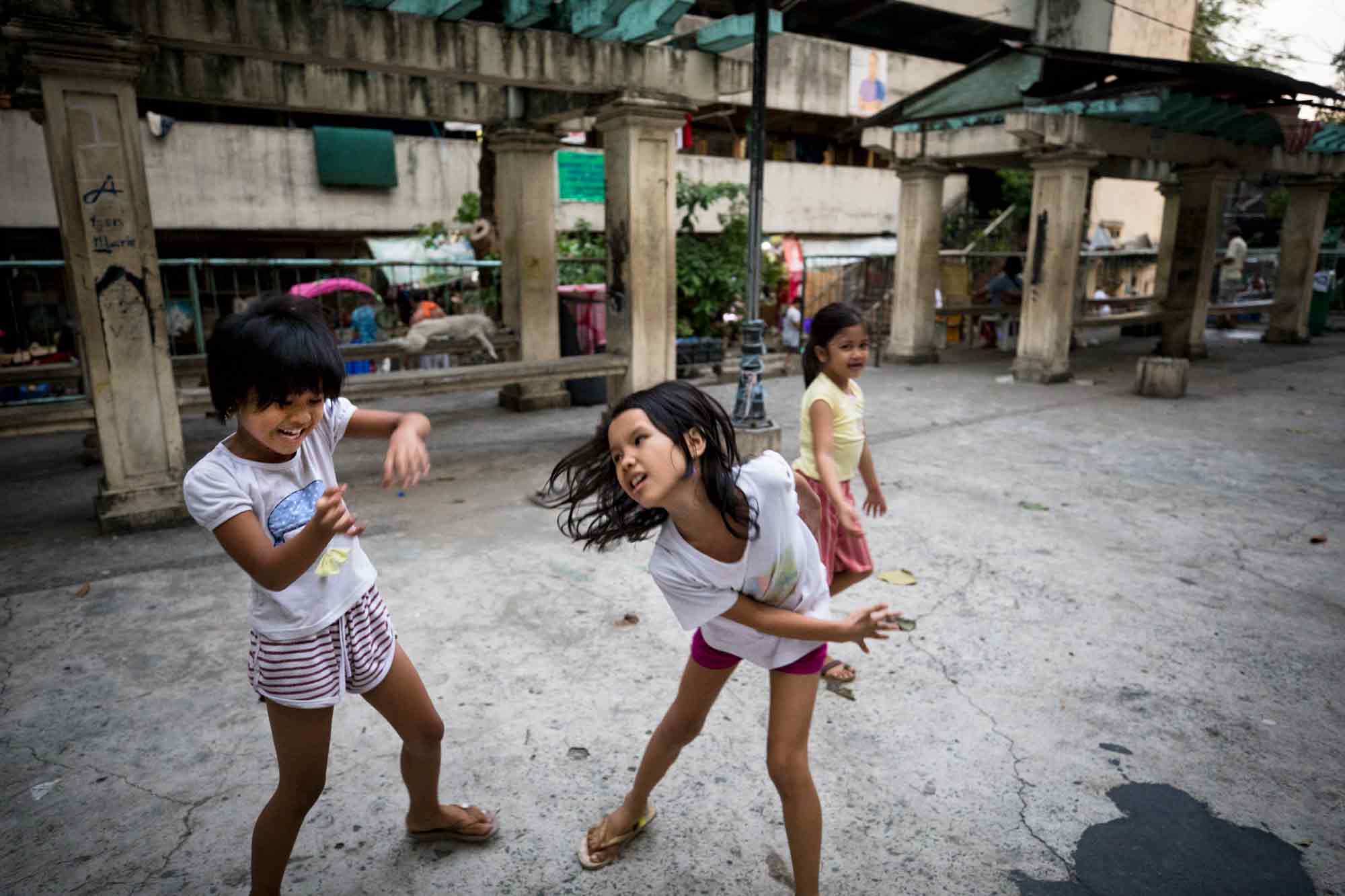
Ayannah Barra and Eona del Rosario, both ages 8, left and right, sometimes fight and other times play in the public space while Joana Sheerin, 7, watches at the Tenement in Taguig, Philippines.
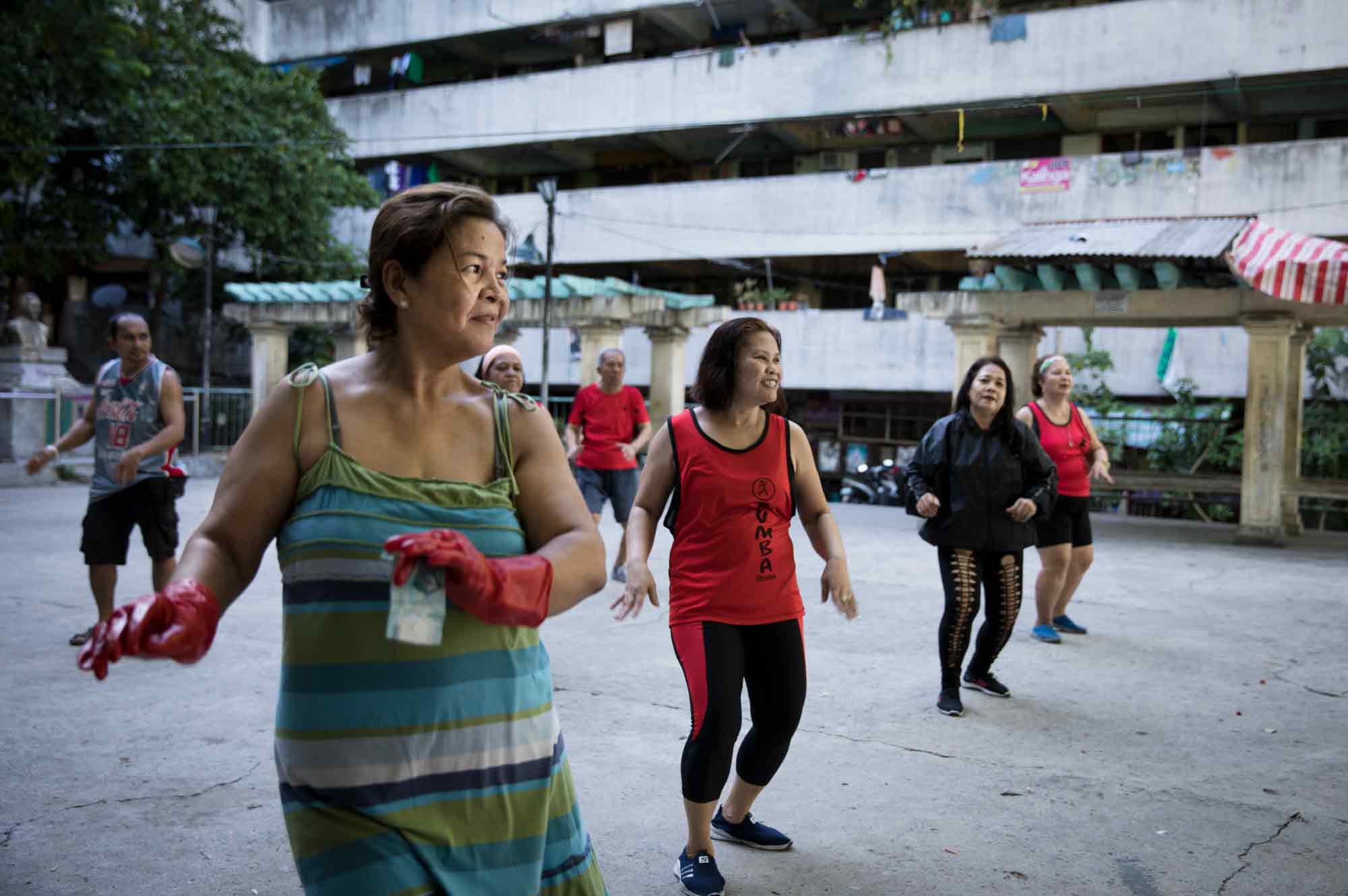
"I'm an addict, so even though I'm busy I can't stop myself from joining them," said Jocelyn Enriquez, far left, who practiced Zumba with money still clasped in her kitchen gloves. She joined Enrique Lukban, Analiza Carullo, Molly Amascual, Rosa Sagaya Donguines, Alice Mistica and Elvira Talorong, rear left to right, in the public square at the Tenement in Taguig, Philippines.
In the shadow of the wealthiest real estate developments in Manila, Philippines, is a massive dilapidated housing complex built with Japanese reparations from World War II — the Tenement. While politicians and businessmen eye it for development, the poorest residents in the city continue their daily lives in this mini ecosystem. Built in 1963, the gray crumbling walls host a vibrant community of families living in overcrowded units, lack basic utilities such as running water and struggle with drugs and gambling. It’s a place where one’s skill in playing cards or basketball can mean the difference between feeding ones family–or not.
